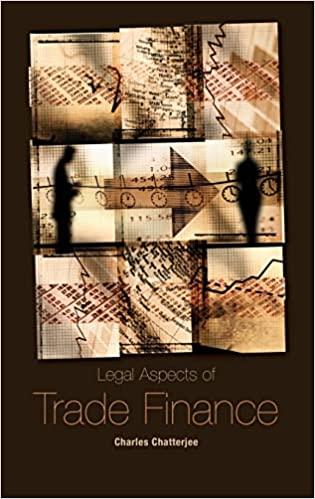Question
On December 31, Year 2, P Inc. purchased 80% of the outstanding ordinary shares of S Company for $310,000. At that date, S had ordinary
On December 31, Year 2, P Inc. purchased 80% of the outstanding ordinary shares of S Company for $310,000. At that date, S had ordinary shares of $200,000 and retained earnings of $60,000. In negotiating the purchase price, it was agreed that the assets on Ss statement of financial position were fairly valued except for plant assets, which had a $40,000 excess of fair value over carrying amount. It was also agreed that S had unrecognized intangible assets consisting of trademarks that had an estimated value of $24,000. The plant assets had a remaining useful life of eight years at the acquisition date and the trademarks would be amortized over a 12-year period. Any goodwill arising from this business combination would be tested periodically for impairment. P accounts for its investment using the cost method.
Additional Information -
- At December 31, Year 6, an impairment test of Ss goodwill revealed its recoverable amount is $50,000
- An impairment test indicated that the trademarks had a recoverable amount of $13,750. The impairment loss on these assets (goodwill and trademarks) occurred entirely in Year 6.
- On December 26, Year 6, P declared dividends of $36,000, while S declared dividends of $20,000
- On December 26, Year 6, P declared dividends of $36,000, while S declared dividends of $20,000.
| Financial statements for P and S for the year ended December 31, Year 6, were as follows: | ||||||||||||||
| STATEMENTS OF FINANCIAL POSITION | ||||||||||||||
| December 31, Year 6 | ||||||||||||||
| P | S | |||||||||||||
| Assets | ||||||||||||||
| Plant assetsnet | $ | 230,000 | $ | 160,000 | ||||||||||
| Investment in Storm | 310,000 |
| ||||||||||||
| Other investments | 82,000 | 22,000 | ||||||||||||
| Notes receivable |
| 10,000 | ||||||||||||
| Inventory | 100,000 | 180,000 | ||||||||||||
| Accounts receivable | 88,000 | 160,000 | ||||||||||||
| Cash | 20,000 | 30,000 | ||||||||||||
| 830,000 | 562,000 | |||||||||||||

Required: -
- Calculate the acquisition differential, goodwill and non-controlling interest at acquisition date, December 31, Year 2. Prepare the acquisition eliminating entry at acquisition date on the consolidation worksheet.
- Prepare the schedule of amortization of acquisition differential and impairment)
- Calculate consolidated net income for the year ended December 31, Year 6. Separate the portion attributable to P and to non-controlling interest.
- Prepare the consolidated income statement for year 6. Show attribution to each shareholder group.
- Calculate the ending balance of consolidated retained earnings at December 31, Year 6.
- Calculate the ending balance of non-controlling interest that would appear on the consolidated balance sheet at December 31, Year 6
- Calculate the balance of Plant Assets @ net that would show on the consolidated balance sheet at December 31, Year 6.
- Calculate the balance of ordinary (common) shares on the consolidated balance sheet at December 31, Year 6.
- Assume that P used the equity method to record its investment in S. What would be the value of the Investment in S account on the Ps separate entity balance sheet at December 31, Year 6.
Step by Step Solution
There are 3 Steps involved in it
Step: 1

Get Instant Access to Expert-Tailored Solutions
See step-by-step solutions with expert insights and AI powered tools for academic success
Step: 2

Step: 3

Ace Your Homework with AI
Get the answers you need in no time with our AI-driven, step-by-step assistance
Get Started


